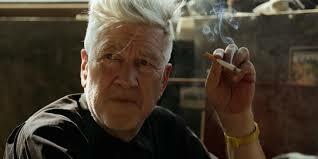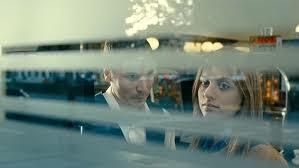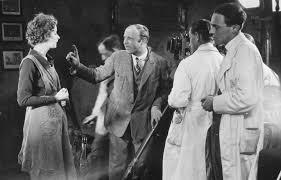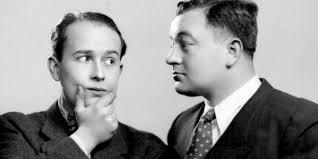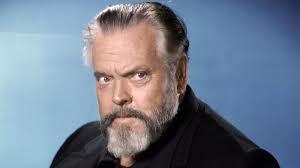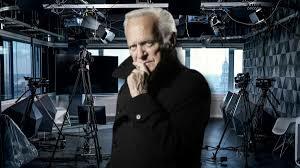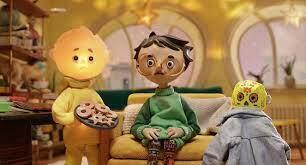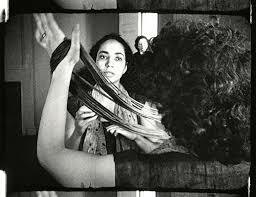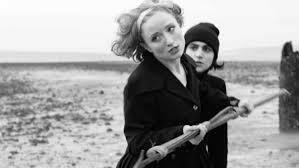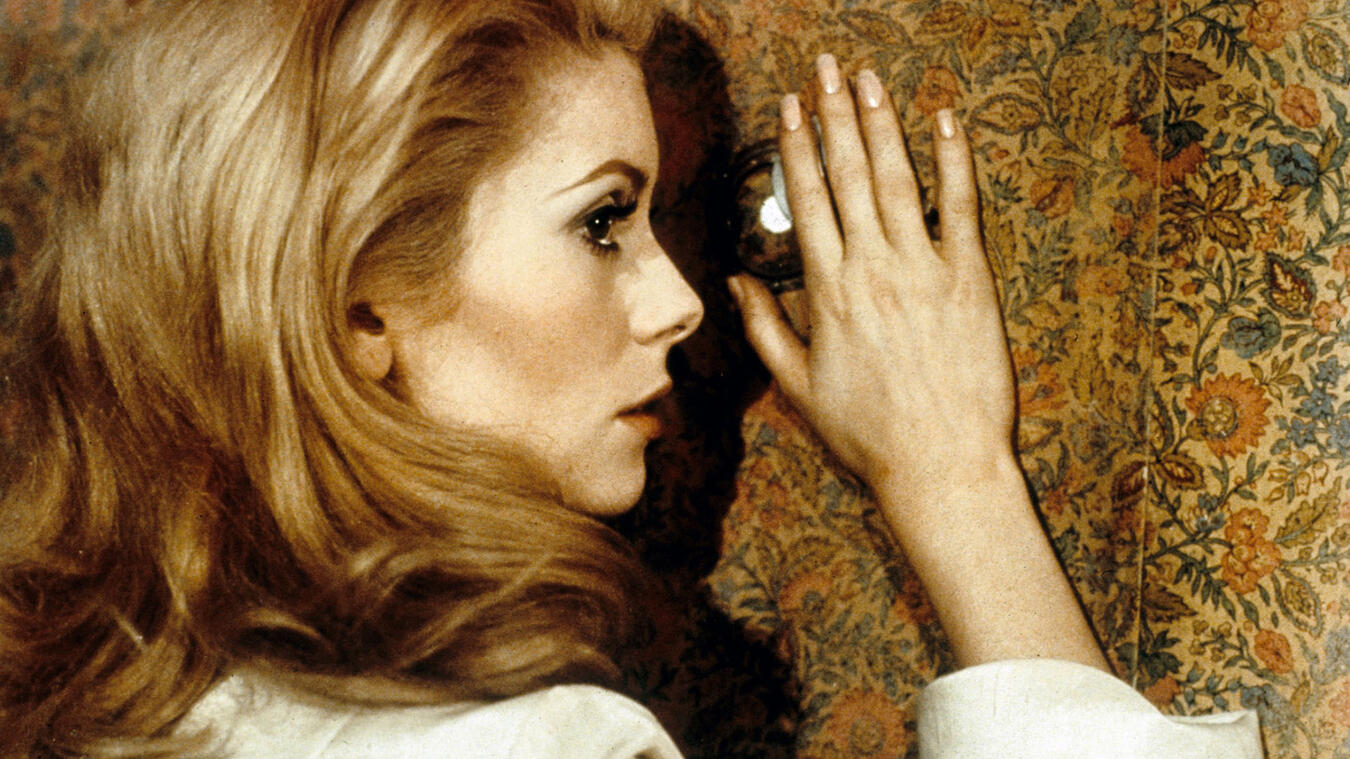
Czechs and their Buñuel
Ester Krumbachová
Petr Král
Jiří Němec
Jiří Cieslar
M. K.
Ester Krumbachová
Luis Buñuel is the greatest filmmaker in the world. A dream! The truth! Order! Whimsy! Instinct! O Buñuel, Buñuel, you have saved my soul!
(16/17 September 1993, diary entry after seeing The Phantom of Liberty)
Petr Král
Buñuel's surrealism, much less visual (sensual) than that of his temporary ally Dali, is not only closely tied to developments in time, especially starting with Angel of Doom (which, admittedly, is already prefigured by certain dialogues Golden Age); his own tool is also a deceptive - if not mystifying - play with the viewer, a perfidious hesitation of sequences and shots between different levels of reality (perception and imagination, direct and symbolic speech), functioning at the same time as a "critique of the world" and as a provocation of the viewer's judgement, with the intention of getting the viewer to actively cooperate. These specifics, admittedly, went unnoticed for a long time. Most critics, whether they were for Buñuel or against him (many of them, in fact, alternated between the two positions), sought the director's surrealism only in his themes; the ironic treatment of these themes, the only essential one, eluded them all the more because Buñuel was able to apply them against surrealism, until he finally turned its classical position on its head. (...) It is also worth noting that, although he had teamed up with a painter for his debut, he nevertheless began his career by personally cutting open his eye on the canvas, as if he wanted to nip all painting in the bud.
Jiří Němec
Let us now try to summarize the various elements of Buñuel's cinematic world and thus get at least an outline of the overall view. The first such significant element is the attempt to clarify reality. Buñuel's foray into the film is marked by the slit eye from The Andalusian Dog - with such a surgical incision Buñuel wants to expose the essence of reality. But the experience he gains in this way is also shaped by the worldview assumptions of surrealism, to which he adheres. He finds the essence of lived reality in desire and in the finitude of the one world, which is its own reason and goal. He shares with surrealism the conviction of the fundamental innocence of man, who becomes a criminal only because the most diverse conventions and taboos drive him into insoluble dilemmas in the realisation of desire. For all these layers of social restraints, down to the most spiritual, are merely derivatives of the basic instinctive energy that sometimes sweeps them away like a building made of matches. Human dignity rests on honor, on fidelity to self, on personal authenticity. But this is ultimately impossible except in the revealed authenticity of the world, in the consciousness of its self-sufficiency, both in horror and beauty. This is why Buñuel watches characters such as Nazarin or Viridiana with participation, but finds them problematic, because in them "nature has perhaps ventured too far", to paraphrase a statement by a Czech artist and meditator (Otakar Březina). Buñuel's position probably corresponds to the view of a physician, let's put it bluntly - the view of a psychoanalyst of original observation.
Buñuel's discovery, then, was the profound reality of love and desire and the revolt against the false consciousness that suppressed and obscured it. The goal of his endeavour became the acceptance of the world and its clarification by an art that shows the beauty in the midst of horror, without lulling us into thinking that there is no need to fight against this horror, without renouncing the demand for the dignity and innocence of man. In Buñuel's work, love and rebellion are mutually conditional and not conceivable in isolation. Yet the finitude of the world and of life remains a constant incentive to capture and valorise the fleeting present, to transform it with the charge of mystery hidden in every reality. But here, too, questions arise that the very nature of an experiment such as Buñuel's necessarily raises. Consider, for example, the form of love that Buñuel identifies with the life principle itself. For him, love is, on the one hand, creative and life-giving, but on the other hand, it is also something destructive that brings everything back to the orgiastic indistinction of chaos and nothingness. For Buñuel, accepting the world means accepting both of these aspects. This is why it is so difficult to distinguish where, in his work, revolt is an act of life, shaking off dead forms, and where, on the contrary, it is a sign of disintegration and a return to the starting point. In spite of some contrary inclinations, Buñuel does not give love a personal outcome, he does not translate the creative effort of life into the uniqueness of human relations, which would thus give meaning to the whole event. (...) His work, by its retroactive effect, really reveals to us the profound dimension of reality, creating a space that allows us to ask for life's serious answers. I cannot imagine, for example, such a Fellini without the discovery of a cinematic "secret", even though this personalist differs significantly from Buñuel in his resulting perspective. Confronted with Fellini, some constants of Buñuel's world stand out more sharply for us. Much is common - the mystery, the dream, the ancient obsessions and traumas confessed to on screen, the unmasking of conventional reality and the all-too-human desire for miracles (even more drastic in Fellini's than in Buñuel's), and, finally, love. Here, too, however, the two artists diverge. While Buñuel's "method", as we have made it present in Viridiana, refers to the creatively destructive nature of the Freudian libido, Fellini's "libido" takes the paradoxical form of a unique yet universal challenge, making sense of the whole world through a loving human gaze (recall Gelsomina in The Road). Related to this is the question of "innocence" - in Buñuel's work, man as victim of a creatively destructive cycle is "innocent". In Fellini's world, on the other hand, the "awareness of guilt", i.e. personal responsibility, is crucial for man.
But let us return to one more of the common features of both directors: black humour. I think that Buñuel's black humour (as opposed to Fellini's) is profoundly ambiguous. (...) And if Buñuel's vision of hopelessness is shocking, then the flight beyond the world, undertaken in the name of transcendence and an abstract norm, is no more justified. (...) I think that no harm is done to Luis Buñuel if it turns out that his work, in its consequences, necessarily evokes the fundamental questions of human existence. Not, perhaps, because it is itself the bearer of certain philosophical theses, but because of its nature as a tool for grasping reality. I also wanted at least to suggest that his strange beauty, filled with cruel irony, pain, honour and energy, calls for us not to place the creative process by which the inner tension of the modern artist is embodied, even in the form of black humour, on the very periphery of interest, as we have done so far.
(1964, from the study Revolt and Poetry in the Work of Luis Buñuel)
Buñuel's cruelty can have an important psychological function - to unleash certain tendencies (repressed) on the artistic level or, on the contrary, to prepare for certain cruel experiences in life in this form (function of antidotes, serum). This has a more general significance: every believer (if he is not to slip into fanaticism and in order to maintain a spiritual balance) must also have room for atheism, doubt, irony towards the "sacred" - one form of this "balance" is art, another is humour.
(private note, January 14, 1964)


